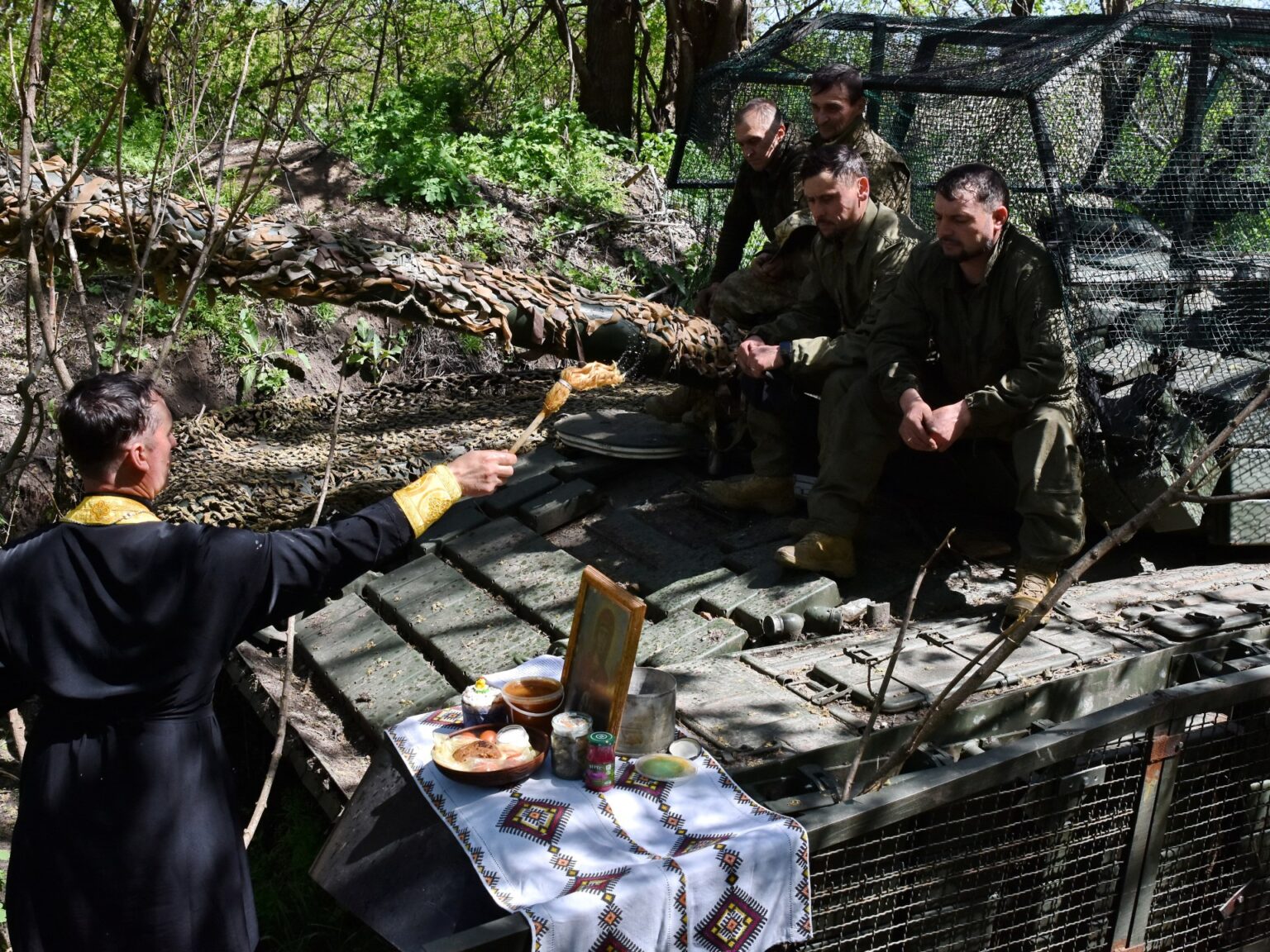Ukraine and Russia have accused each other of breaching an “Easter truce” announced by Russian President Vladimir Putin that Ukraine said was being violated from the moment it started.
In a surprise announcement on Saturday, Putin ordered his forces to “stop all military activity” along the front line in the war against Ukraine, citing humanitarian reasons. The 30-hour cessation of hostilities would have been the most significant pause in the fighting throughout the three-year conflict.
But just hours after the order was meant to have come into effect, air raid sirens sounded in Kyiv and several other Ukrainian regions, with President Volodymyr Zelenskyy accusing Russia of having maintained its attacks and engaging in a PR stunt.
Russia’s Ministry of Defence also alleged on Sunday that Ukraine had broken the truce more than 1,000 times.
“Across various frontline directions, there have already been 59 cases of Russian shelling and five assaults by Russian units,” Zelenskyy said on social media, citing a report as of 6am (03:00 GMT) from Ukrainian commander-in-chief Oleksandr Syrskii.
He said in the six hours up to midnight (21:00 GMT on Saturday), there were “387 instances of shelling and 19 assaults by Russian forces”, with drones “used by Russians 290 times”.
“Overall, as of Easter morning, we can state that the Russian army is attempting to create the general impression of a ceasefire, while in some areas still continuing isolated attempts to advance and inflict losses on Ukraine,” Zelenskyy said.
“In practice, either Putin does not have full control over his army, or the situation proves that in Russia, they have no intention of making a genuine move toward ending the war, and are only interested in favourable PR coverage,” he added.
According to the Kremlin, fighting stopped at 6pm Moscow time (15:00 GMT) on Saturday until Sunday midnight (21:00 GMT) owing to Easter.
But as church bells rang out for Easter services on Sunday, residents in Kyiv expressed doubts whether Russia would observe the brief truce.
Natalia Malaieva noted that an air raid alert was heard in Kyiv moments after the truce began.
“Missiles and drones flew over. There were explosions caused by missiles,” she said. “What kind of a ceasefire is that?”
Olha Malashuk added: “He [Putin] probably wants to rearm the troops … That is why no one believes him any more.”

Accusations and counteraccusations
In a statement on social media on Sunday, the Russian Defence Ministry said Ukrainian forces had shot at Russian positions 444 times and it had counted more than 900 Ukrainian drone attacks.
It added that the border regions of Bryansk, Kursk and Belgorod had come under attack. “As a result, there were deaths and injuries among the civilian population as well as damage to civilian objects,” the ministry said.
Quoting a source in “operative services”, the Russian state news agency TASS said at least three blasts were heard in the Budennovsky district of Donetsk in eastern Ukraine, which has been under Russia’s control since 2014.
The report blamed Ukrainian forces for what it said was an attack carried out during the truce. There was no immediate comment from Ukraine.
A Ukrainian military spokesperson confirmed that activities on the front lines with Russia had decreased, but the fighting had not stopped.
“It is decreasing, but it hasn’t disappeared,” Viktor Trehubov told national television.
“To be honest, we didn’t hold out much hope that this would actually happen,” the military spokesperson for Ukraine’s eastern front said.
Reporting from Moscow, Al Jazeera’s Yulia Shapovalova said both sides were accusing each other, but according to analysts, it is almost impossible to stop all the hostilities immediately. But generally, the situation on the battlefield is much calmer, and the number of attacks has decreased.
“The Russian reaction to this ceasefire is very positive,” she added.
“People hope that it will last, and analysts also say that Russia and Putin are likely in a favourable position right now for a longer truce and peace negotiations, taking into account Russia’s gains on the battlefield and the efforts by the US side as well,” Shapovalova said.
‘A pure political step’
Andrei Fedorov, a former Russian deputy foreign minister, called Putin’s announcement “a pure political step” and said it was taken for both domestic and international reasons.
“Easter is one of the main holidays for Russia and Putin wants to show that he’s following Russian Orthodox Church tradition,” he told Al Jazeera.
“At the same time, it’s a very important test for him if Ukraine will do the same, because now when there will be a new stage of talks on Ukraine, [and] it’s very important for Putin to have real arguments that say, ‘look, Ukraine is not following the agreements. Ukraine is breaking down the ceasefire.’”
Putin’s announcement came a day after United States President Donald Trump said Washington will “take a pass” on trying to resolve the Russia-Ukraine war if either Moscow or Kyiv makes it too difficult to end it.
Reporting from Washington, DC, Al Jazeera’s Rosalind Jordan said neither side can currently really afford to anger the Trump administration.
“Especially now that they are saying very publicly here in Washington that they are ready to walk away, even though President Trump has said repeatedly that he is tired of what he calls the ‘carnage’ in the war between Ukraine and Russia,” she said.
But there has been no reaction from the Trump administration this weekend to developments in the Ukraine war.
Vladimir Sotnikov, an associate professor of international relations at the Higher School of Economics in Moscow, said he fears Trump has “jumped into” a peace plan that “won’t work in the near future”.
“Both sides – Ukraine and Russia – are still very far from sitting down at the table and trying to talk to each other,” Sotnikov told Al Jazeera.
“This was also something promised by President Trump,” he said, “but the main problem, actually, is that both sides still have deep mistrust of each other.”

